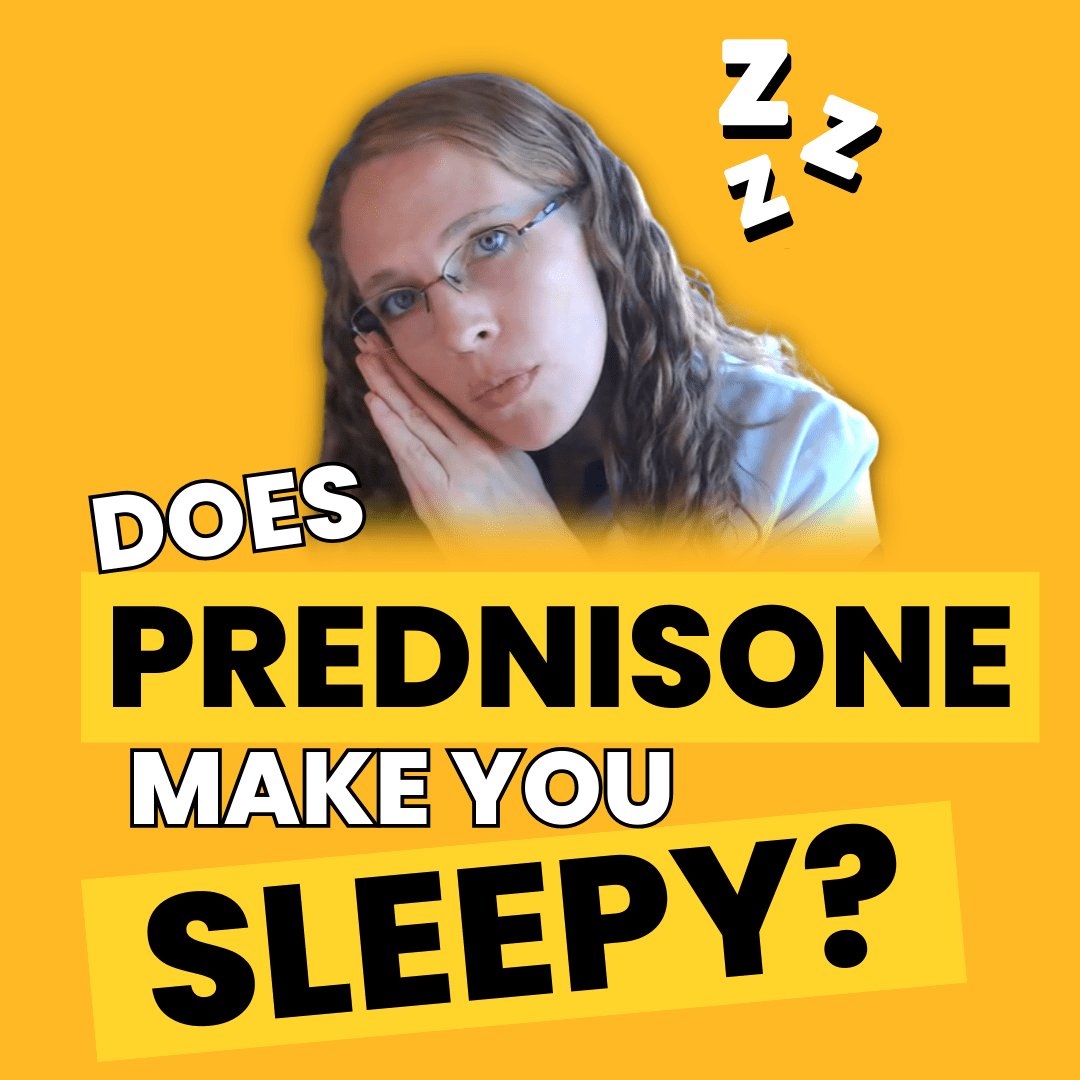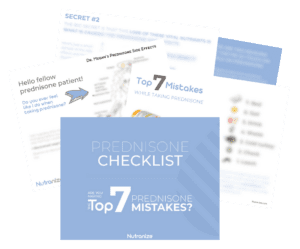Does Prednisone Make You Sleepy? 5+ Ways to Combat Tiredness on Prednisone

Does prednisone make you sleepy? Prednisone can affect sleep patterns and overall well-being. When it comes to medications, it’s common to experience various side effects. One such medication is prednisone, a corticosteroid drug frequently prescribed for a range of conditions. A common question among individuals taking prednisone is whether it causes sleepiness. In this blog post, we will delve into the relationship between prednisone and drowsiness to help you understand the potential effects of this medication.
Watch now!
Prednisone Explained
Before examining the potential sleep-related side effects of prednisone, let’s take a moment to understand what this medication is and why it is prescribed. Prednisone is a synthetic corticosteroid that mimics the effects of cortisol, a hormone produced naturally in the body. It is commonly prescribed to reduce inflammation, suppress the immune system, and manage a variety of conditions, including allergies, asthma, arthritis, and autoimmune disorders.
Common Side Effects of Prednisone
Like any medication, prednisone carries potential side effects. However, it is important to note that not everyone experiences these side effects, and their severity can vary from person to person. Some of the common side effects associated with prednisone include weight gain, increased appetite, mood swings, fluid retention, high blood pressure, and changes in sleeping patterns.
Drowsiness and Prednisone
Now, let’s address the primary concern – does prednisone make you sleepy? While drowsiness is not commonly listed as a direct side effect of prednisone, it can affect individuals differently. Some individuals may experience insomnia or difficulty falling asleep due to the medication’s impact on hormonal balance and energy levels. Conversely, others may find that prednisone makes them feel more tired than usual. If you notice a significant change in your sleep patterns while taking prednisone, it is essential to discuss this with your healthcare provider.
Managing Sleep-Related Side Effects
If you find that prednisone affects your sleep patterns and causes drowsiness, there are some strategies you can try to manage this side effect:
1. Talk to your healthcare provider
Inform your healthcare provider about your drowsiness to determine if an adjustment to your dosage or alternative treatment options are available.
2. Optimize your sleep routine
Establish a consistent sleep schedule, create a relaxing bedtime routine, and ensure your sleep environment is conducive to quality rest.
3. Incorporate light exercise
Engaging in light physical activity during the day can help combat fatigue and promote better sleep at night.
4. Limit caffeine and stimulant intake
Reduce your consumption of caffeine and other stimulating substances, especially in the evening, as they can interfere with sleep.
5. Seek stress management techniques
Practice stress-reducing techniques, such as mindfulness, deep breathing, or yoga, to help relax your mind and body before bed.
Nutranize Zone for Better Sleep
I invented a supplement that contains melatonin and other ingredients to help you sleep restfully at night such as magnesium glycinate. It’s designed to get you the restful sleep you need to replenish the nutrients that prednisone steals so that you can feel like yourself again and have the energy you need.
Nutranize supports you while you’re on prednisone to help you have energy so you’re not so sleepy, tired, and lethargic. You can get it at Nutranize.com. I’m an award-winning clinical pharmacist and I did it based on my own experience and then based on the science of what Prednisone is really doing to our bodies.
Conclusion
While sleepiness is not a typical side effect associated with prednisone, it can affect individuals differently. If you experience significant changes in your sleep patterns while taking prednisone, it is crucial to consult your healthcare provider. They can provide guidance and potentially adjust your treatment plan to minimize any sleep-related side effects. Remember, everyone responds to medications differently, so it’s important to prioritize open communication with your healthcare team to ensure the best possible outcome for your treatment.
Related Posts
-
9+ Supplements to Avoid While on Prednisone
In this article, we will discuss 9+ supplements to avoid while taking prednisone and the... -
10 Nutrients You Need While on Prednisone
Prednisone is a medication commonly prescribed to treat inflammatory conditions such as arthritis, asthma, and... -
3+ Foods to Avoid while on Prednisone
Prednisone is a commonly prescribed medication for a variety of conditions, ranging from autoimmune disorders...


